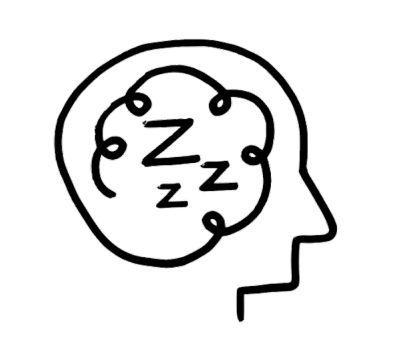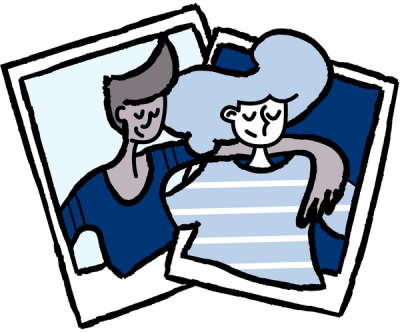What can cause depression?
While experts are still figuring out the concrete causes of depression, we do know that the likelihood of you experiencing depression can be influenced by your current circumstances, experiences you’ve had in the past, and even your genetics.
Just like the symptoms of depression, the causes or triggers can be different for everyone.
Remember that depression is a treatable condition. There are many things that you can do to feel better in the moment, as well as long-term strategies that work to treat depression. Lifeline is always here for you if you want to speak to someone.
So what kinds of personal factors, events or experiences could lead to feelings of depression?
Your current circumstances
Feelings of depression are often caused by parts of our life that we’re unhappy with, or which are causing us distress.
Depression can be caused or triggered by life stressors like:
- Financial strains
- Unemployment or job insecurity
- Stress at home, school, work, or elsewhere
- Relationship breakdowns
- Grief, or the loss of a loved one
- Big life changes like you or a loved one moving out of home, finishing school, or retiring
- Addiction
- Poor sleep.
“When I split with my ex-wife, I went to a really dark place.”
It’s important to note that feeling low or sad is completely normal for all of us after certain experiences.
For example: if you’re feeling down after losing a loved one, losing your job, or after your children move out of home, you might not be experiencing depression. However, if your symptoms last a long time and the severity of your symptoms impacts your daily functioning, it could be a problem.
- Disconnection
A sense of disconnection is also a common cause of feeling depressed and can come in a number of forms.
You might feel:
- Disconnected from others, including friends, your partner, or family
- A disconnection between your values and the way you live your life
- Disconnected from a sense of meaning or purpose in life.
Click here to learn about the importance of building social connections.
- Isolation and loneliness
- Not feeling seen, understood or valued
Past or childhood experiences
Experiences or situations in your past, particularly in childhood, could make you more vulnerable to experiencing depression. These experiences may still feel like they happened just yesterday, even if they were a long time ago.
Past experiences can also contribute to depression even if we don’t remember them, or think they’re still important.
These experiences could include:
- Abuse, including physical, sexual or emotional abuse
- Witnessing domestic and family violence
- Traumatic events (such as accidents or violence)
- Dealing with the separation of your parents
- Experiencing the loss of family or friends
- Neglect, including emotional neglect, or a lack of support from loved ones
- An unstable family situation.
It’s important to note that this list does not cover every past situation that could contribute to depression.
It’s also natural to want to escape painful or difficult memories, which is a common reason for turning to drugs or alcohol, gambling, smoking, over eating, or other addictive behaviours to soothe the pain. However, these behaviours can in turn contribute to feelings of depression too.
Genetics
We don’t fully understand the connection between genes and depression just yet, but we know our genes can affect our likelihood of experiencing depression.
Research involving identical twins (with the same genes), raised in different homes, has also strengthened the evidence that there is a genetic link. Studies show that when one twin has depression, the other twin also experiences the condition 67% of the time – even if their environment and lives were completely different.
What other factors could be contributing to depression?
- Lifestyle factors
Your diet, sleep quality, physical activity, self-care activities, and consumption of alcohol and other substances can all play a role in depression.
Depression can often be a cause or a result of addiction. Click here to read our support guide on understanding and managing addiction.
- Other coexisting mental health challenges
- Withdrawal
- Social media use
- Exposure to news and current affairs
Remember, depression is a treatable condition. There are things you can do to feel better in the moment and long-term strategies that work to treat depression.
Click here to download, save, or print our depression fact sheet.






